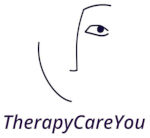Guilt is an all-consuming emotion that can have effects on both yourself and your relationship. Guilt tells us that we have done something that goes against our morals and values or we have in some way wronged someone else. This can leave us with feelings of guilt and responsibility for others around us.
This is why it is important to be able to recognise what this kind of guilt looks like, understand why this guilt exists, how it is connected to our self-esteem and relationship dynamics, as well as how to equip ourselves with the tools to overcome this state and free ourselves from guilt in our everyday lives.
What does this guilt look like?
· Being in a constant state of worry
· Constantly thinking you have upset others
· Over analysing situations where you think you could have done things differently
· Feeling guilt for thoughts and things you have not done but thought of
· Blaming yourself for others being in a bad mood
· Letting small things intensify your own self-criticisms
· A constant and consistent belief that any problem that may arise is somehow your fault
Why do we feel guilty?
Guilt can be both rational and irrational. Rational guilt helps us differentiate the good from the bad and is often a consequence of breaking our own moral values. This kind of guilt stems from our empathy for others and is based on us recognising our own wrongs in life.
Irrational guilt is based on us judging ourselves harshly for things that are not completely in our control. Within a relationship, guilt is often induced by one partner over the other by manipulating and shifting blame onto you for whatever the problem may be. This can lead to you blaming yourself and taking responsibility for every issue that arises within your relationship whether it was your fault or not.
How guilt is connected to self-esteem and dysfunctional relationship dynamics
Dysfunctional relationship dynamics can play a major role in creating the sense of guilt you may feel in your relationship. When one partner is always apologising for everything that goes wrong within the relationship, this can create an imbalance within the relationship that can lead to you feeling emotions such as shame, worthlessness, hopelessness, and guilt.
These feelings and emotions can take a heavy toll on your self-esteem as they can generate negative thoughts and self-talk. This kind of environment, especially from your partner within your relationship, can be detrimental to your sense of self-worth and can lead to other issues such as anxiety and depression.
Negative consequences of feeling guilty in a relationship
Feelings of guilt can deteriorate your relationship and create an uncomfortable environment for both you and your partner. This can cause a general sense of discomfort and uneasiness whenever you are with your partner and make it harder for you to be open and honest with your partner about any issues you may be facing or going through. Not being able to be open and honest with your partner can often leave you feeling alone and intensify your guilt.
If your partner is the one making you feel guilty, this can lead to feelings of resentment toward your partner and relationship. Everyday tasks or activities can become tiresome and discouraging as you may feel that you are doing them out of guilt or obligation.

How to free yourself from guilt in your relationship
Freeing yourself from guilt in your relationship can help you live a healthier, happier life. We all make mistakes and fall short in various aspects of our lives. When this happens, it is important to learn to own up to our mistakes to fully understand our shortcomings from all perspectives.
Although it may be hard at times, when you have done something wrong, try your best to understand and apologise. However, sometimes your partner or people around you may do or say things to make you feel guilty on purpose. If this is the case, stay clear of these kinds of people to help clear your head of toxic relationship dynamics. An amazing way to resist the guilt from building is to focus on developing positive affirmations that can help reduce your feelings of guilt and increase your self-esteem. In addition to this, developing better self-regulation skills can improve your state of mind and have a positive impact on both yourself and your relationship.
Lastly, speaking with a therapist or relationship coach can help guide you through this process. This can also give you an external perspective whilst equipping you with the necessary tools you may need to manage and maintain your emotions in the best way possible.

